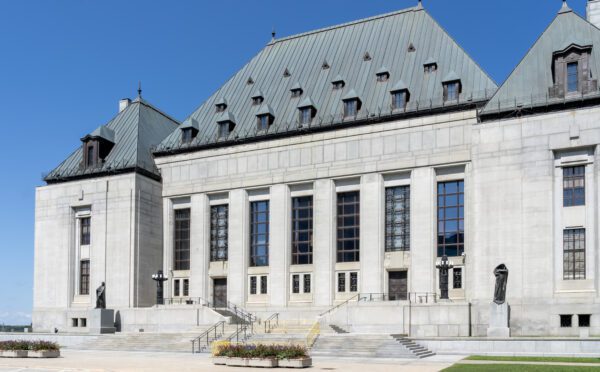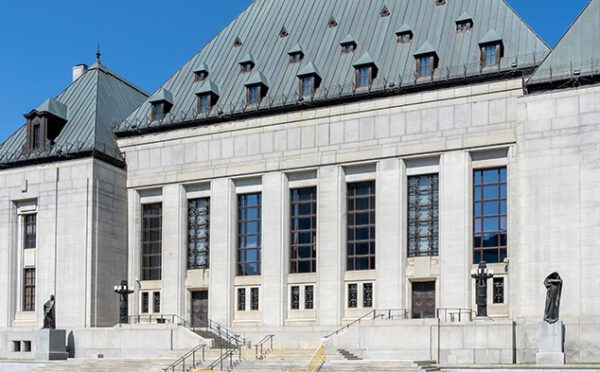Authors
Partner, Disputes, Vancouver
Associate, Disputes, Vancouver
Associate, Tax, Calgary
Partner, Disputes, Toronto
Associate, Disputes, Toronto
On July 19, 2024, the Supreme Court of Canada (SCC) released a significant decision on the availability of damages under the Canadian Charter of Rights and Freedoms for harm caused by legislation subsequently declared unconstitutional. In Canada (Attorney General) v. Power, by a slim majority, the SCC held that governments may be liable for damages where legislation was clearly unconstitutional when enacted, or where it was enacted in bad faith or as an abuse of power.
This Osler Update discusses the legal and practical implications of this judgment for governments and industries impacted by legislated changes.[1]
Background
In 1996, the respondent, Joseph Power, was convicted of two indictable criminal offences. He was sentenced and served his sentence. Years after his release, the respondent applied for a record suspension, but was denied due to legislation that retroactively deemed him permanently ineligible for a record suspension.
The retroactive legislation has since been declared unconstitutional by provincial and federal courts for violating ss. 11(h) (protection against double jeopardy) and 11(i) (right to the benefit of the lesser punishment) of the Charter. Mr. Power filed an action against Canada seeking damages under s. 24(1) of the Charter for harm caused by the retroactive legislation. He claimed that the legislation was enacted in bad faith, abusively, and with knowledge of its unconstitutionality.
In response to Mr. Power’s action, Canada brought a motion on a question of law asking two questions:
- Can the Crown, in its executive capacity, be held liable in damages for government officials and ministers preparing and drafting a proposed bill that was later enacted by Parliament, and subsequently declared invalid by a court pursuant to s. 52(1) of the Constitution Act, 1982?
- Can the Crown, in its executive capacity, be held liable in damages for Parliament enacting a bill into law, which legislation was later declared invalid by a court pursuant to s. 52(1) of the Constitution Act, 1982?
The Court of Queen’s Bench and the Court of Appeal of New Brunswick both answered these questions affirmatively. Both courts held they were bound by the SCC’s 2002 judgment in Mackin v. New Brunswick (Minister of Finance), which held that governments benefit from only a limited immunity from Charter damages for enacting unconstitutional legislation. Canada appealed to the SCC.
Majority reasons
Chief Justice Wagner and Justice Karakatsanis authored the reasons of the five-judge majority.[2] They reframed Canada’s two questions in the appeal as a single issue: can damages ever be an appropriate and just remedy under s. 24(1) of the Charter for the enactment of legislation later declared unconstitutional?
The majority held that an award of damages against the state for exceeding its legal powers is an important requirement of the rule of law. While the constitutional principles of parliamentary sovereignty, separation of powers, and parliamentary privilege are important, they are not absolute: they must be balanced with the principle of constitutional supremacy and the courts’ role as guardian of the Constitution.
The majority rejected Canada’s submission that Mackin was not binding authority. The majority also declined to overrule Mackin. While the legislative branch requires independence from the judiciary to fulfill its institutional functions, an absolute immunity for the harms caused by unconstitutional legislation would subvert the principles that command government compliance with the Charter and the court’s role in enforcing its fundamental guarantees. A limited immunity, by contrast, reconciles the importance of parliamentary sovereignty and privilege with the Charter, by ensuring that these principles are no broader than is justified for a functioning constitutional democracy.
The majority further clarified the two circumstances in which the state may be liable for damages resulting from unconstitutional legislation. The first such circumstance arises if the legislation was “clearly unconstitutional”, such that at the time of its enactment, it would clearly violate Charter rights. This involves an objective assessment of the legislation; particularly, the nature and extent of its constitutional invalidity. This assessment will usually imply that the state either knew the law was clearly unconstitutional or was reckless or willfully blind to its unconstitutionality. The second such circumstance arises if legislation was enacted in bad faith or abuse of power. The majority cautioned that these would be rare situations. The majority further emphasized that the threshold is exacting, and a plaintiff’s failure to plead detailed particulars will be fatal to its claim at the pleadings stage.
Minority reasons
Justice Jamal, joined by Justice Kasirer, dissented in part. After a detailed overview of the history and scope of parliamentary privilege, Justice Jamal held that the Crown, in its executive capacity, could never be liable in damages for preparing and drafting Charter-violating legislation that was later enacted by Parliament. But Justice Jamal agreed with the majority that the government should not be absolutely immune from damages where an enactment violates the Charter, although he adopted a higher threshold. Justice Jamal held that damages could only be appropriate where the legislation was “clearly unconstitutional” at the time it was enacted, in the sense that the unconstitutionality of the legislation could not have been the subject of serious debate.
Justice Rowe, joined by Justice Côté, dissented in full, writing that the government is entitled to absolute immunity from Charter damages. Justice Rowe held that the preparation of legislation involves multiple actors across both the executive and legislative branches of government, with overlapping executive and legislative functions. To hold the Crown, in its executive capacity, liable for the drafting and enactment of legislation, would thrust courts into a position of overseeing the work of Parliament. It would require courts to inquire into the motives of parliamentarians and others involved in the legislative process. Justice Rowe held that absolute immunity is thus required to protect the separation of powers and to enable parliamentarians to freely express themselves and act on matters of public importance without fear of interference or reprisal.
Implications
The SCC’s decision has important implications for government and industries operating in heavily regulated contexts.
Power reaffirms that governments can be liable for damages resulting from Charter-infringing legislation. The objective nature of the test the majority established means that courts will scrutinize, with the benefit of hindsight, the government’s assessment of the constitutional validity of its legislation. As a result, the decision in Power will pressure governments to scrutinize the constitutionality of proposed legislation to ensure that it is not vulnerable to a claim that it was enacted with recklessness or willful blindness to its compliance with the Charter. It is also possible that governments may increasingly resort to the notwithstanding clause to protect against Charter damages claims.
The SCC’s decision may also invite class actions seeking damages for unconstitutional legislation. Class actions typically seek redress for harm to a large number of people, such as could be caused by unconstitutional legislation. Indeed, at least one class action based on the Mackin standard pre-dates the SCC’s decision in Power (Canada v. Whaling, 2018 FCA 38).
The SCC’s decision may provide companies operating in heavily regulated industries with redress in the event they are subject to Charter-infringing legislation.
[1] Osler, Hoskin & Harcourt represented the British Columbia Civil Liberties Association in this proceeding. The Osler team comprised Emily MacKinnon, Brodie Noga and Emily Wang.
[2] They were joined by Martin, O’Bonsawin and Moreau JJ.


